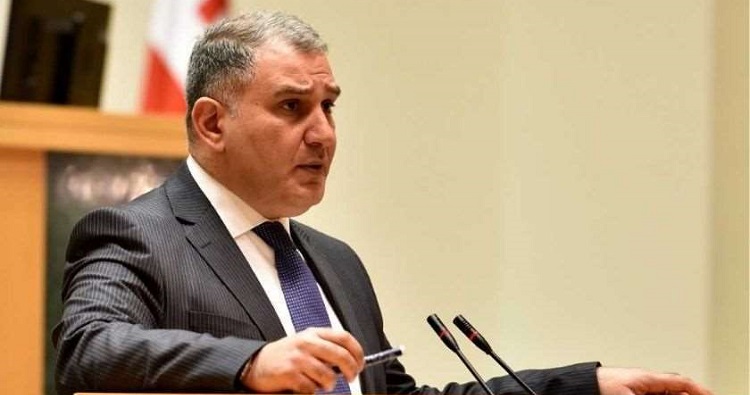Parliament Human Rights Committee Chair: surveillance bill “absolutely compatible” with European standards of human rights protection

In his remarks over the matter, he also stressed there was “no contradiction” between the bill and the standards that “can be established by the European Court of Human Rights”. Photo: Parliament of Georgia
Mikheil Sarjveladze, the Chairman of the Committee on Human Rights of the Georgian Parliament, on Monday said the domestic surveillance bill was “absolutely compatible” with European standards of human rights protection.
Sarjveladze was commenting on the opinion of the Council of Europe’s Venice Commission that on Friday said “the draft law amending Georgia’s procedure for the use of covert investigative measures was adopted in a hasty procedure and requires both impact assessment and more detailed justification”.
As for a hasty review of the issues, I will remind that the review procedure was postponed for two weeks in order to facilitate presentation of arguments, although they [the domestic opposition] did not present any substantial arguments against the draft law”, Sarjveladze said.
“Therefore, I don't know where the idea came from that the procedure was hasty and anyone didn't have the opportunity to fully present their opinions and engage into debate”, the Parliament official said.
In his remarks over the matter, he also stressed there was “no contradiction” between the bill and the standards that “can be established by the European Court of Human Rights”.
“We cannot say that this legislative initiative violates any good modern standards. Therefore, neither the Venice Commission nor the [Georgian] President presented substantive criticism. No motivated comment on the law has been presented. The President's veto has been dictated by political motives rather than legal arguments”, he said.
I could not say that the adopted draft law is unbalanced in terms of human rights and security protection. The draft law does not have any shortcomings from this point of view. Many civilised European countries have a similar model of solving issues, and [the bill] is absolutely compatible with European standards of human rights protection”, Sarjveladze concluded in his comments, adding that the Parliament would override the President's veto.
On June 22, Georgian President Salome Zourabichvili vetoed the ruling party bill that extends scope and time limits on covert investigative actions, surveillance and wiretapping by state authorities, citing human rights concerns in her decision.
Before Zourabichvili vetoed the bill, local non-governmental organisations had urged her to take a stand against the amendments, claiming approval of the legislation would hit human rights protection standards and mark a “serious setback for democratic development of Georgia”.
 Tweet
Tweet  Share
Share